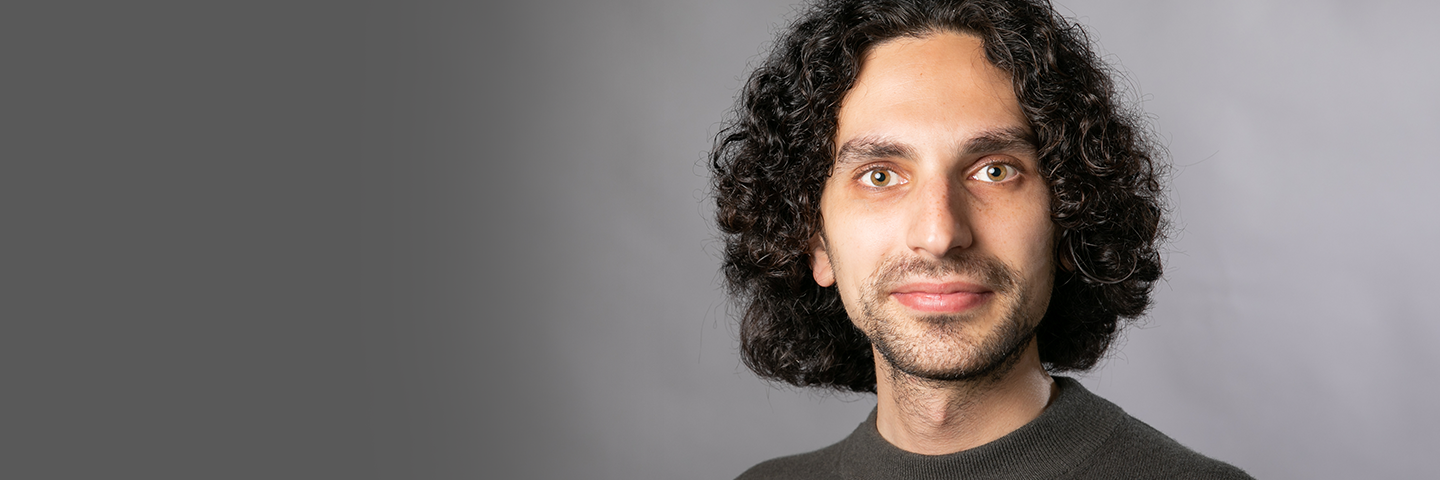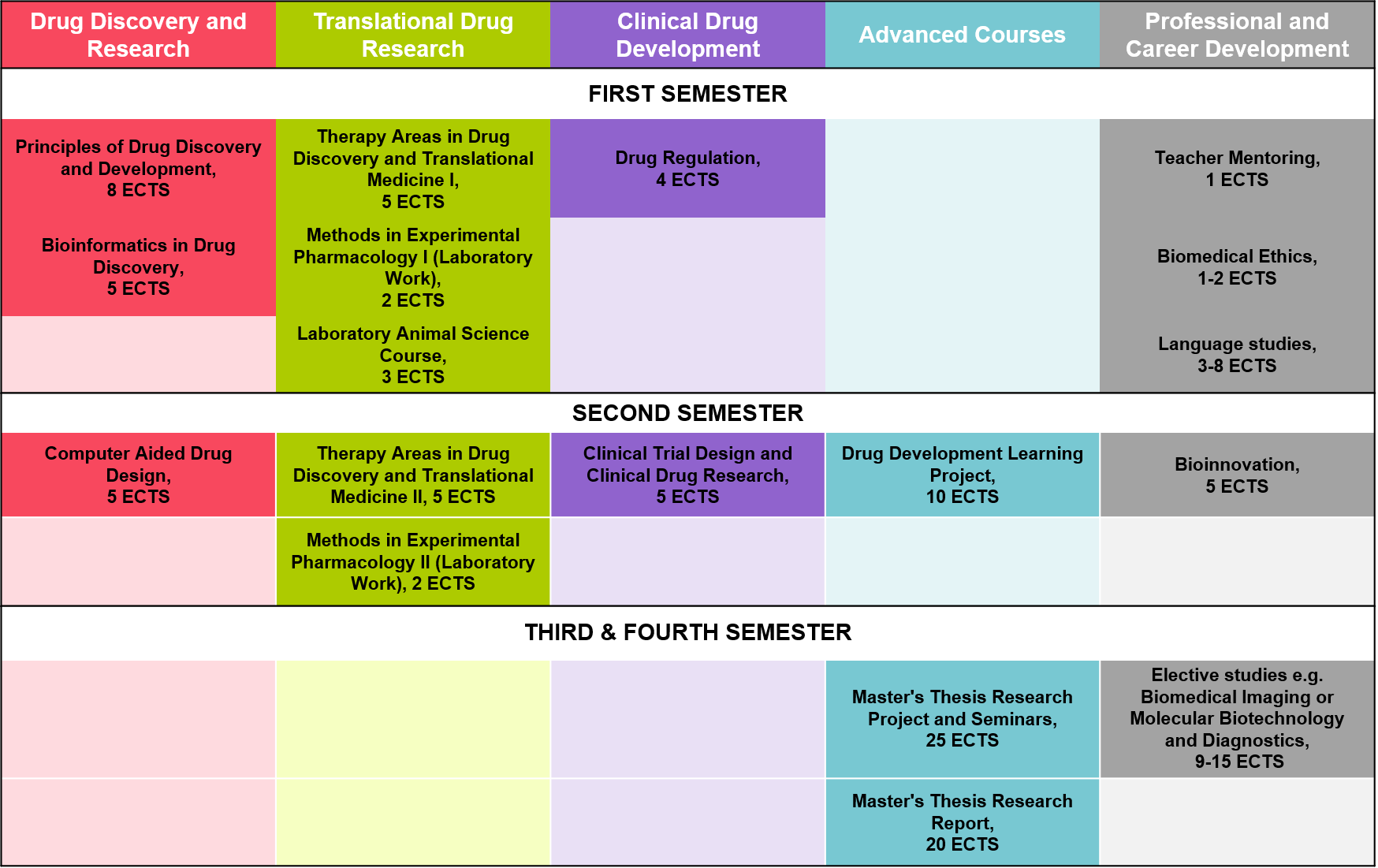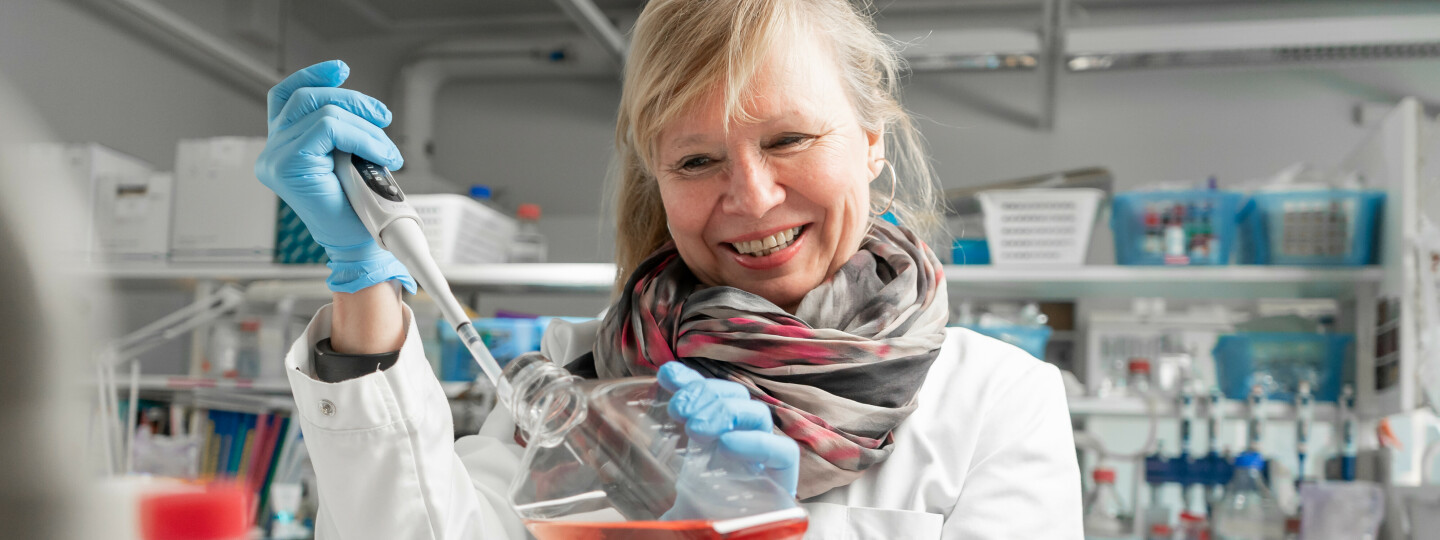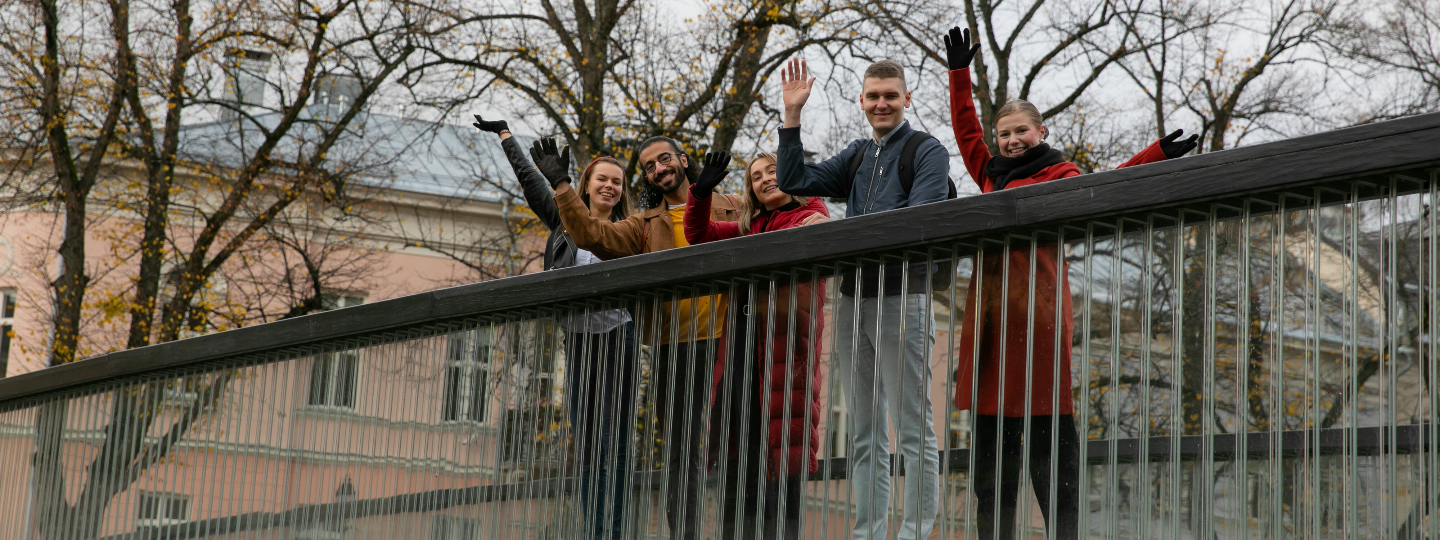Master’s Degree Programme in Biomedical Sciences: Drug Discovery and Development
Study in Finland’s top city for drug innovations! We train experts for the whole chain of drug development – from molecules to regulations.
The studies in Drug Discovery and Development give you a deep understanding of up-to-date methods applied to identify and validate new drug targets and to generate lead drug molecules. It also provides knowledge of technological innovations as well as methods of clinical drug research and development phases, clinical trial design, study planning and biostatistics. In addition, you will learn about drug regulatory science and pharmacovigilance.
After graduation, you master drug discovery and development processes as well as procedures applied in drug regulatory science. You will also be familiar with the role of drug regulatory authorities during the life span of a drug. The University of Turku also offers Drug Research Doctoral Programme for post-graduate studies.
You will have comprehensive skills to work in the field of biomedicine and drug discovery in companies, universities, research institutes or drug regulatory authorities. The programme also provides a good foundation for those interested in entrepreneurship.
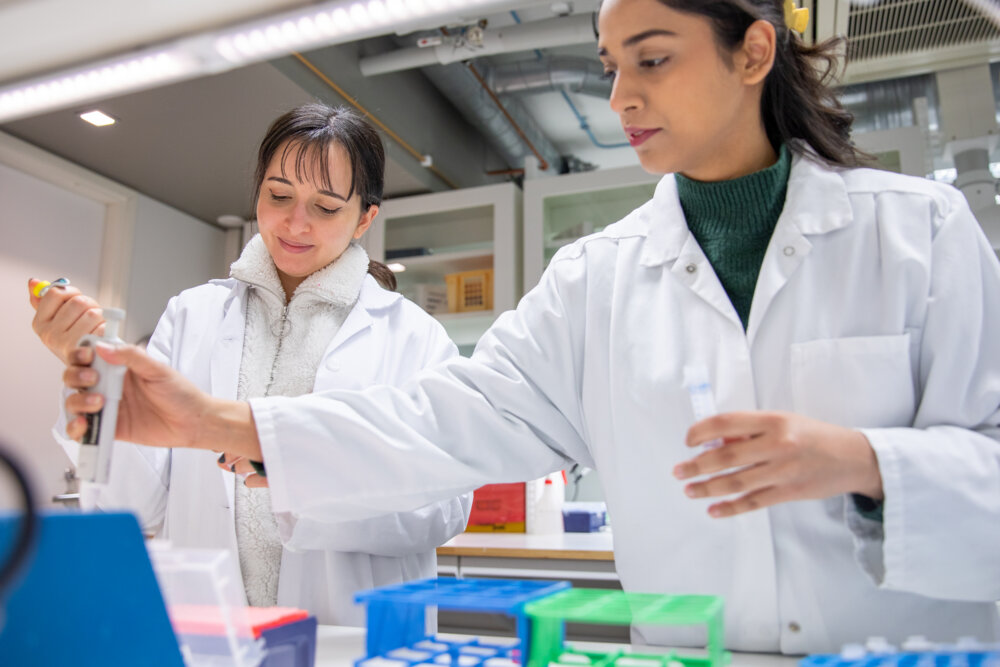
Entry requirements
General Requirement
You are an eligible applicant for Master’s-level studies if
- you have a nationally recognized first cycle degree – normally a Bachelor’s degree – from an accredited institution of higher education,
- your degree corresponds to at least 180 ECTS (European credits) or to three years of full-time study,
- your degree is in a relevant field for the Master’s degree programme that you’re applying to. Please check the section on programme-specific admission requirements for detailed degree requirements.
Language Requirements
Applicants must have excellent English language skills and a certificate that proves those skills. You can indicate your language skills by taking one of the internationally recognized English language tests.
Applicants must reach the minimum required test results to be considered eligible to the University of Turku. No exceptions will be made. Read more about the language requirements here.
Study right
You will not be granted a new, similar study right to pursue a degree or course of study that you are already pursuing, or have already completed, within the same field or a corresponding subject at the University of Turku. If your study right has expired or been moved to the passive register, you cannot apply for a new, similar study right. Instead, you must then apply for an extension to your study time or a reactivation of your study right.
Before you start preparing your application, always read the full admission requirements on the application portal Studyinfo.fi
The degree on basis of which you are applying to the MDP in Biomedical Sciences must be in a relevant field of study. For the Drug Discovery and Development track such fields are
- bioengineering
- biochemistry
- bioinformatics
- biology
- biomedical sciences
- chemistry
- medical sciences
- other life sciences
- pharmacology
- pharmacy
The applicants should also be familiar with the basics of laboratory practice. Both Finnish and foreign students can apply to the programme.
The applicants can apply only to one specialisation track in Biomedical Sciences programme.
The applications are evaluated by the admission committee of the Master’s Degree Programme specialisation track. The evaluation is based on
- suitability of background studies
- previous academic success
- relevant laboratory experience
- motivation letter
- pre-assignment and interview (the most successful applicants only)
For the exact scoring, please see the full admission requirements at Studyinfo.fi.
The academic evaluation is made only for complete applications that are received during the application period. Any preliminary assessment of suitability or chances for admission will not be given.
The contents of formally eligible applicants’ previous degrees do not always correspond to the academic level of the Programme. Therefore, admitted students can be advised or required to complete additional, Bachelor level studies. These can be done while studying for the Master’s Degree, but they are not part of the degree and may extend the targeted study time. The amount of required additional studies cannot exceed 60 ECTS.
Programme in brief
The Drug Discovery and Development specialisation track is part of the Master's Degree Programme in Biomedical Sciences. The close co-operation of three specialisation tracks forms a unique educational combination of biomedical sciences in Finland and worldwide. Other specialisation tracks of the Master's Degree Programme in Biomedical Sciences are:
Biomedical Imaging
Molecular Biotechnology and Diagnostics
Click to enlarge the image describing the programme structure for the specialisation track in Drug Discovery and Development:
Turku is a great place to study drug discovery and development! Of the Finnish drug innovations, 90 percent have been made in Turku. To support the future discoveries, the University of Turku has chosen drug development as one of its strategic profiling areas.
The research in biosciences and medicine in the University of Turku is internationally ranked among the best in the world. The keys for success lie in long biomedical research traditions and a compact campus area where two universities and a university hospital co-operate to create an interdisciplinary and innovative study and research environment.
Research focus is on translational medicine, disease modelling, and biomedical imaging. Available research infrastructures include the world famous Turku PET Centre and Turku Centre for Disease Modeling, both of which offer services for drug development research.
Turku also has the largest cluster of pharma industry in Finland. Nearby companies not only provide experts for visiting lectures, but also create internship and job opportunities for the graduates.
The Master’s thesis project is based on independent and experimental research work.
You agree on your thesis topic with your thesis examiner and write a research plan, conduct a research project in a laboratory, analyse obtained results, and demonstrate your ability to interpret results and write a report in a form of a scientific article. The project work is always performed under the guidance of a supervisor.
In order to also practice scientific communication, you will present your results in seminars and write a press release to stimulate collaboration between the academia and the media. Additionally, you will act as a peer reviewer for you fellow student to practice feedback discussions.
Examples of past thesis topics:
- Drug development for receptor antagonists and their potential in treating cognitive disorders
- Pharmacological characterization of ion channels
- Optimization of Microfluidics Encapsulation with Nanoprecipitation for Controlled Drug Delivery
- Diagnostics tools for coronary artery diseases – characterization of antibodies
- Modelling of schizophrenic disorders in rats
- The Effects of Melanocortin Signaling on Hypertrophic Responses in Cultured Cardiomyocytes
- RNA interference in HSV-virus treatment
- The use of positron emission tomography (PET) to measure the effect of disease modifying therapies in MS disease
- The iron-entry pores in Dps-like proteins as potential drug-design target: Structural investigations
Turku has longstanding research traditions in the field of biomedicine. Especially the areas of drug discovery, diagnostics, and biological and medical imaging represent the top level expertise of the University of Turku.
The Drug Discovery and Development specialisation track is part of the MSc Programme in Biomedical Sciences, which is a collaboration of two universities, the University of Turku and Åbo Akademi University. The close co-operation of three biomedical programmes forms a unique educational combination of biomedical sciences in Finland and worldwide. The programme in Biomedical Sciences is managed together by the Faculty of Medicine and the Faculty of Technology at the University of Turku.
The offered education is based on the true research strengths of the participating units:
- Institute of Biomedicine at the University of Turku
- Department of Biochemistry at the University of Turku
- Department of Biosciences at the Åbo Akademi University
Other specialisation tracks of the Master´s Degree Programme in Biomedical Sciences are Biomedical Imaging and Molecular Biotechnology and Diagnostics. Major subject studies in each are track-specific but can be offered as selectable studies for all the study tracks. Each student makes a personal study plan which helps to select the courses, which best suit for personal interests and background.
Drug Discovery and Development specialisation track is part of the NordBioMedNet network. The universities of Bergen, Southern Denmark, Eastern Finland, Turku and Karolinska Institutet have established the network to develop biomedical education in Nordic countries. Students in Drug Discovery and Development track have possibilities for course, internship and research project exchange in the partner universities.
Career propsects
The studies in Drug Discovery and Development provide you with a deep understanding of:
- up-to-date methods applied to identify and validate new drug targets, and to generate lead drug molecules that modulate biological activity of the target
- technological innovations made in lead optimisation process
- how new drug candidates are investigated during the non-clinical drug development phase
- methods of clinical drug research, clinical drug development phases, clinical trial design and biostatistical study planning
- various aspects of the drug regulatory science and pharmacovigilance
After graduation, you will be an expert in drug discovery and development processes. You will know the procedures applied in drug regulatory science and the role of drug regulatory authorities during the life span of a drug.
You will learn comprehensive skills to work in the field of biomedicine and drug discovery in companies, universities, research institutes or drug regulatory authorities. The Programme also gives a good foundation for those interested in entrepreneurship.
Possible job titles are:
- medical liaison
- medical writer
- regulatory consulting expert
- scientific/technical advisor
- research director
- project manager
- drug development pharmacologist
- university lecturer/researcher
The Master of Science degree completed in the Programme qualifies the graduates for PhD studies in Turku, elsewhere in Finland or universities worldwide. Graduates from the Programme are eligible to apply for a position in the University of Turku Graduate School, UTUGS. The Graduate School consists of doctoral programmes, which cover all disciplines and doctoral candidates of the University.
Together with the doctoral programmes, the Graduate School provides systematic and high quality doctoral training. UTUGS aims to train highly qualified experts with the skills required for both professional career in research and other positions of expertise.
Several doctoral programmes at University of Turku are available for graduates:
Student experiences
